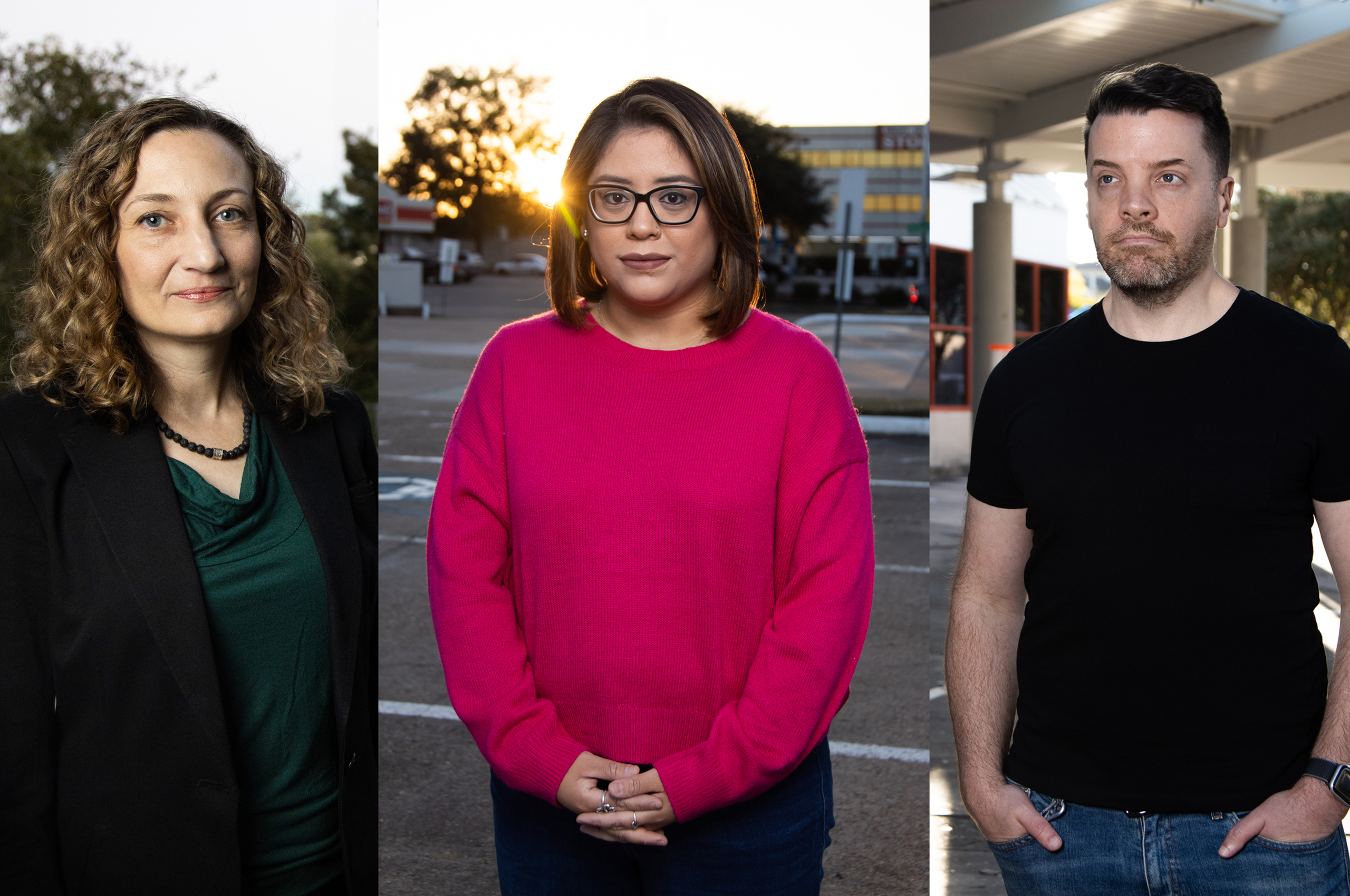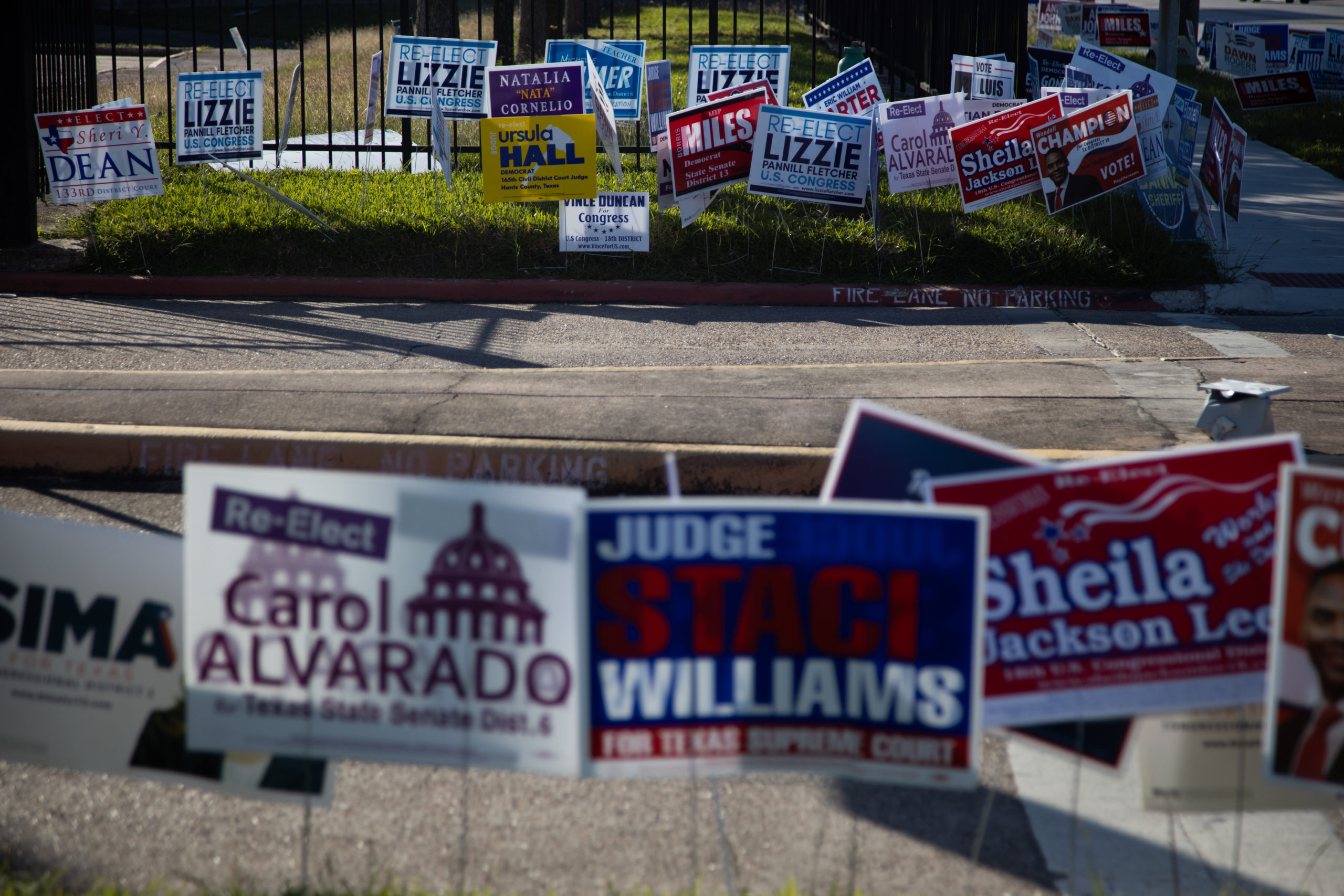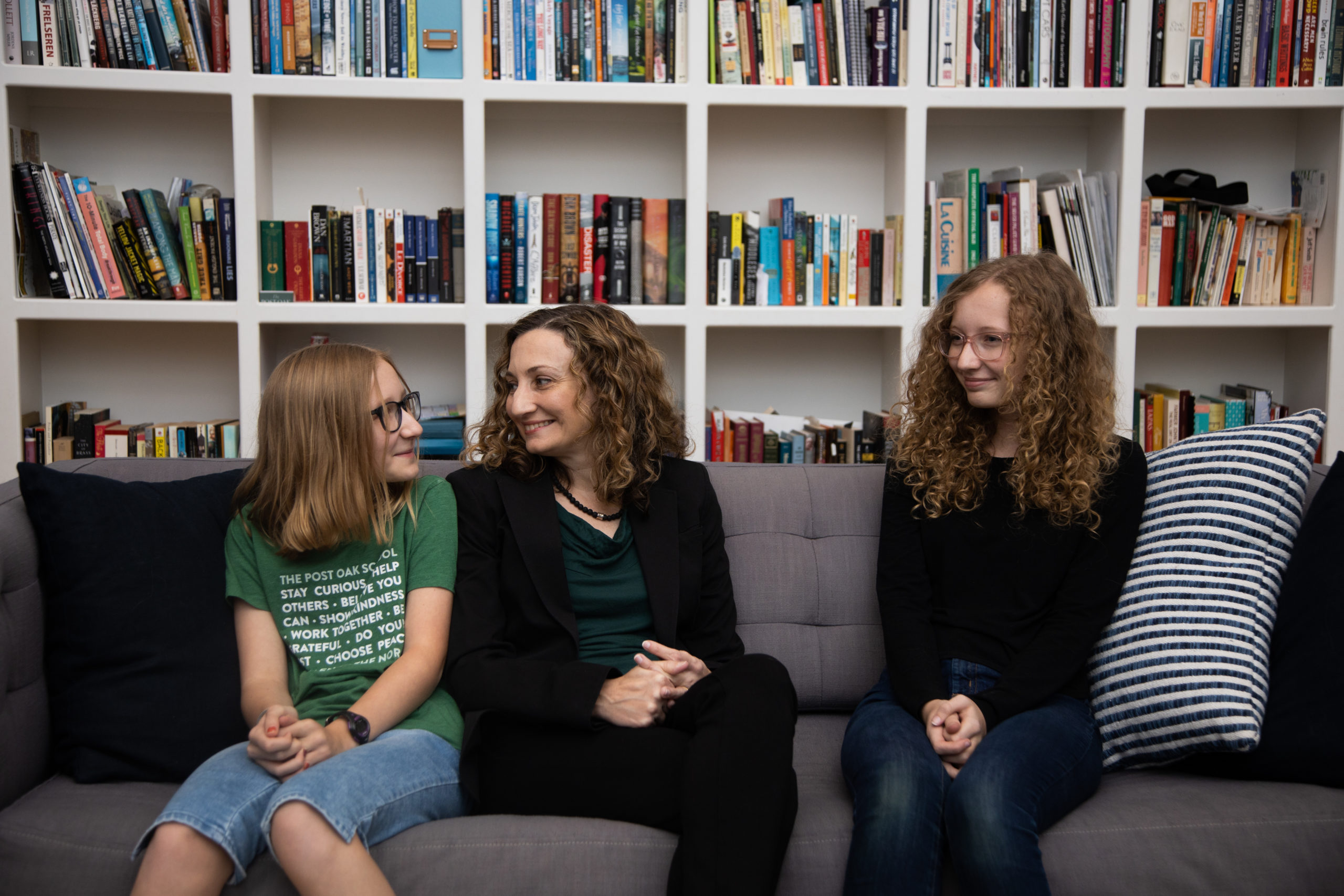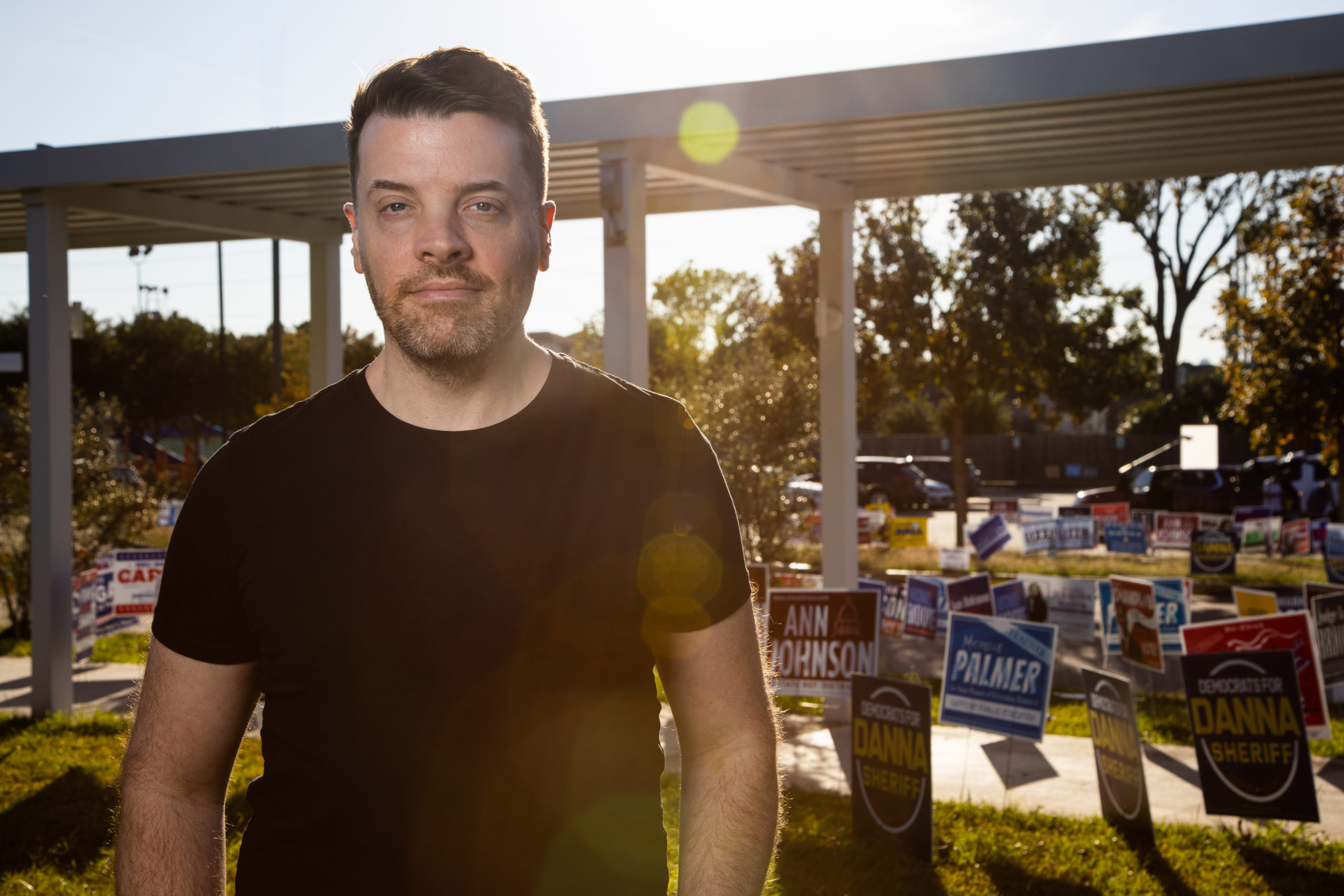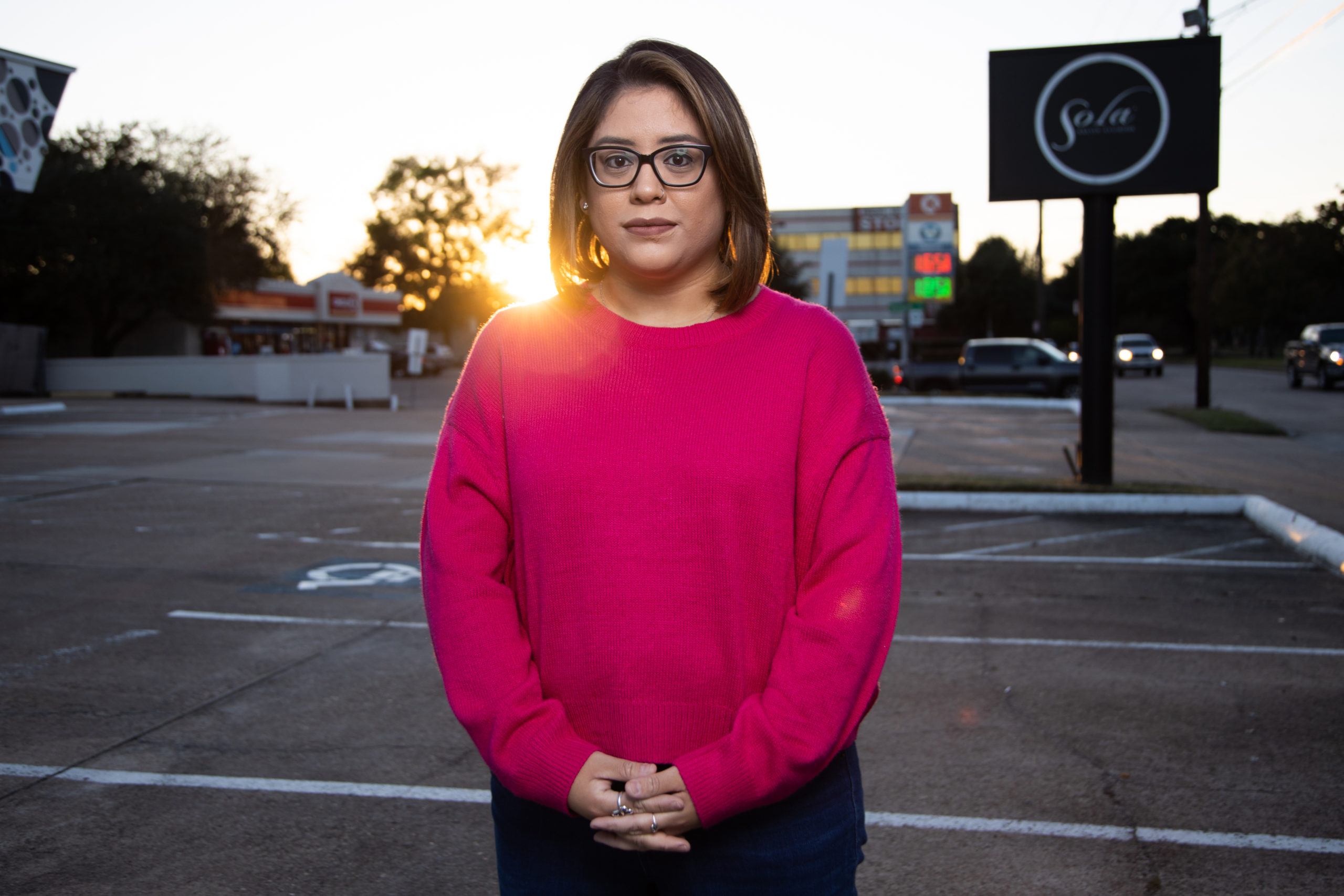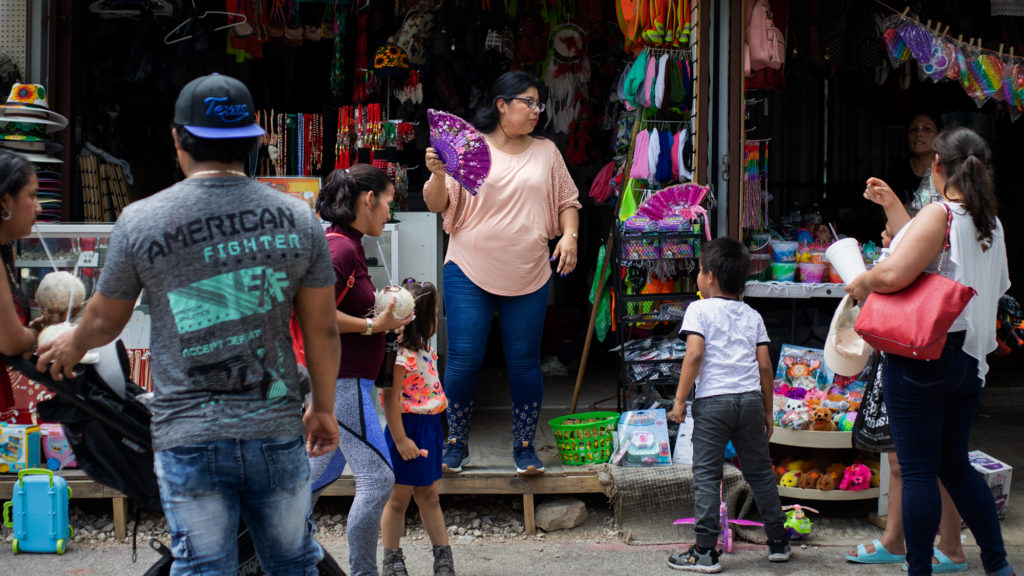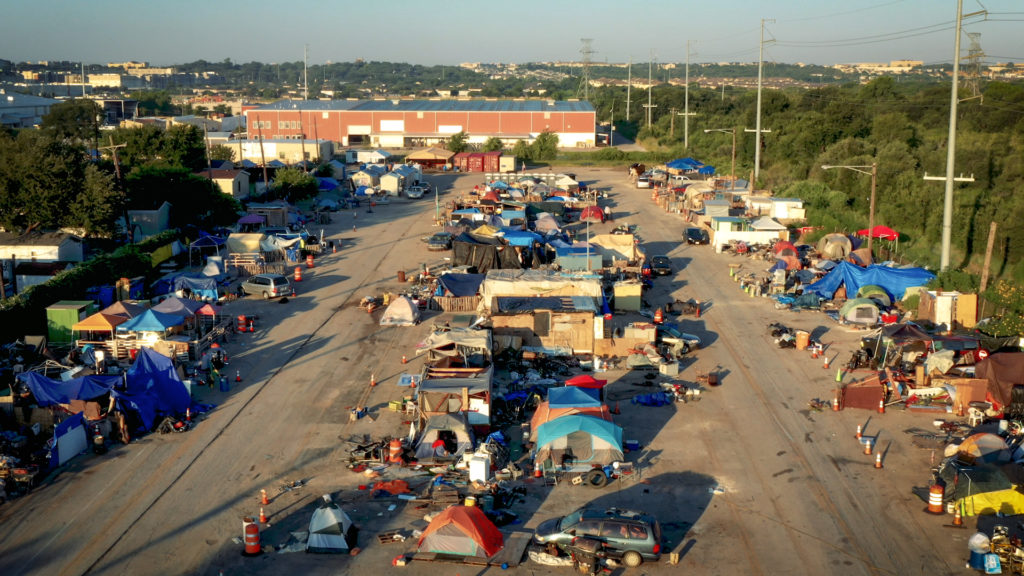If you have questions about voting or experience problems or intimidation at the polls, you can contact the Election Protection hotline at 866-OUR-VOTE /888-VE-Y-VOTA.
Despite a deadly global pandemic, voters across the country have turned out in record numbers to cast their ballots in a historic election. In Harris County, Texas, local election officials have worked diligently to expand safe voter access in the state’s most populous county, which is home to nearly 5 million residents, half of which are registered voters.
The county’s election budget increased from $4 million in 2016 to $33 million this fall. The number of polling places across the county tripled, with six polling sites kept open 24 hours a day. Election officials also established drive-thru voting so that more people could protect themselves from exposure to the coronavirus when casting their ballots.
Republicans in Texas have challenged many of these measures, with varying degrees of success. Governor Greg Abbott issued an executive order limiting the number of mail-in ballot drop boxes to one per county, a ruling that was upheld by a US appeals court.
Despite having some of the most restrictive voting laws in the country, 1.4 million people voted early in Harris County, surpassing the total number of votes in 2016 by tens of thousands, with many more voters expected on election day.
Candidate signs crowd the sidewalks around the Metropolitan Multi-Services Center near downtown Houston, one of the largest voting centers in Harris County. [Photo by Kelly West]
In some cases, it’s not election laws that keep people from voting, but small bureaucratic elements, like long lines, the misreading of a rule, or voting machine malfunctions that turn voters away. Which is why groups like the Harris County Democratic Party (HCDP) have worked for months to recruit volunteer poll workers and poll watchers to ensure that voting locations are safe and fair, and that people who should have access to the polls are able to cast their ballots.
We spoke with three volunteers in Harris County who are participating in the election process as clerks, advocates, and poll watchers about what it means to get involved and what they’re expecting on election day.
Nicole Pedersen
Harris County Democratic Party Voter Protection Supervisor
Nicole Pedersen is an international trade lawyer who volunteered to lead the charge to make this year’s voter protection initiative more robust than ever before. “Now I think we’re running the biggest voter protection program Harris County ever had.”
The voter protection initiative is a multi-pronged project that includes the recruitment and coordination of poll watchers, who observe elections, and a team of lawyers, who try to resolve issues reported by voters through hotlines hosted by the Texas Democratic Party and HCDP.
Nicole Pederson has not had much time to spend with her daughters, Amelie, 12, left, and Isa, 14, between her full-time job as an international trade lawyer and her volunteer work as a voter protection supervisor. She is heartened by the unusually high numbers of people volunteering to be poll watchers this year, and the number of first-time voters showing up to the polls. [Photo by Kelly West]
Although Pedersen works closely with the party, she resists the idea that voter protection is based in politics. “I really don’t think it is a partisan issue. I know it has become one. It has become an issue of the Democrats, but it shouldn’t be. That’s not how I approach it at all.”
Her team might field questions about the kinds of ID voters can use to prove they’re registered, how to surrender a mail-in ballot, or problems with voting lines and voting machines. Because this election in Harris County includes more polling places and voting methods than in previous years, staffing the extensive operation has been challenging.
But Pedersen has been working fourteen hours a day seven days a week for months. “My kids say they only see me right now when I wake them up in the morning and right before bed,” she says. “But it’s only a few more days.”
So far, things have been calmer than anticipated. “We have not seen really egregious issues. It has felt like a very busy election, but the calls we’ve been getting seem to be typical voter-protection types of calls.”
Election day itself is likely to be the busiest time of all, and Pedersen will be dialed in to a full-day call with the “boiler room” of lawyers, while also coordinating poll watchers, who can be reassigned if certain locations see larger turnout than anticipated.
“Every election is different, and I’ve learned that something unexpected happens every single time,” Pedersen says. “I don’t know what that thing will be on Tuesday, but I do feel like we put together a large network of people who are ready to respond to any voter protection issue that comes up. I think we’ve done the prep work, and now we just have to wait and see what happens.”
Judson Dunn
Harris County Democratic Party Poll Watcher
Judson Dunn has worked as a poll watcher for HCDP for the past four years, since the 2016 presidential election. He estimates he’s volunteered for six elections so far, including smaller, local elections in Harris County.
“I’m an introvert, and I like the idea of observing things as a way of being helpful,” says Dunn, who works in IT. “Justice is a core value to me, and I’ve always had a sense of fairness. I think the more people who vote, the better. But tiny little things can disproportionately turn people away.”
Judson Dunn said he was drawn to volunteer as a poll watcher after the 2016 presidential election, because it suited his personality. [Photo by Kelly West]
Poll watchers work on behalf of political parties, keeping an eye out for hitches in the process — technological hiccups or confusion about what voters can bring inside a voting location. Poll watchers can’t interact directly with voters, but they can observe what’s going on and speak with a precinct judge if they notice a problem.
“These tiny little things — good-faith problems, as I call them — if they create a long line that makes people unable to vote, it’s a problem,” Dunn says. “The easier it can be, the better.”
Poll watchers like Dunn are required to attend a training session to become certified by their political party. “I think it’s kind of an old-timey thing,” Dunn says, “But I think the party has turned it into a way to make sure that people can vote, and there’s not a ton of volunteers that do that.”
This has historically been true, partly because the role requires volunteers to stand by and watch for long stretches of time, and they aren’t supposed to interfere or speak up unless they notice an issue. They also can’t use their cell phones while in the polling place. But this year has been different. HCDP managed to recruit nearly 200 poll watchers, about four times as many as in 2018.
“People are exceptionally engaged,” Dunn says. “This is the most important election in my lifetime.”
Nancy Yanes
Harris County Democratic Party Election Clerk
Nancy Yanes voted for the first time in 2016, but on election day she’ll participate in the process in a new way — as an election clerk at Iglesia Sendero de la Cruz, a voting location on Houston’s northside.
For the past four years, Yanes has been following the news of anti-immigration policies and family separations at the US-Mexico border under President Donald Trump.
Nancy Yanes would normally be at Sola Salon, where she runs her hairstyling business, on a Tuesday, but this Election Day she has other plans.Somewhat new to the electoral process and looking for a way to contribute, she volunteered to be an election clerk. [Photo by Kelly West]
“I just felt like I didn’t know where to go with how I feel about the things I was learning, but I just wanted to get involved however I can. Most of my family, they were illegal, and now they’re all citizens who have the right to vote,” says Yanes, who works as a hairstylist.
It was one of her clients who suggested she volunteer as an election clerk. “After talking to her and her saying how people get turned away because they don’t have the proper ID, to take that away from someone? I just want everyone who can vote to vote,” Yanes says, “regardless of whatever side they want.”
Because Yanes speaks Spanish, she’ll serve as a greeter and translator for voters who have questions about the process. “I’m a people person, and I have a variety of clients,” she says, “so I can talk to anybody and listen to anybody and just be okay with everyone.”
Yanes didn’t volunteer during early voting, so election day will be her first foray into the work that happens behind the scenes at polling locations, and she’s looking forward to it.
“I’m nervous because I’ve never done anything like this, and I don’t want anyone to get aggressive. We all have different opinions, and we all feel a certain way for a certain reason,” Yanes says. “But I’m excited. I feel like people in my age group are more knowledgeable, and they care. I just feel like everyone’s getting involved, and I think it’s cool.”

